Present tenses There is no future or past,

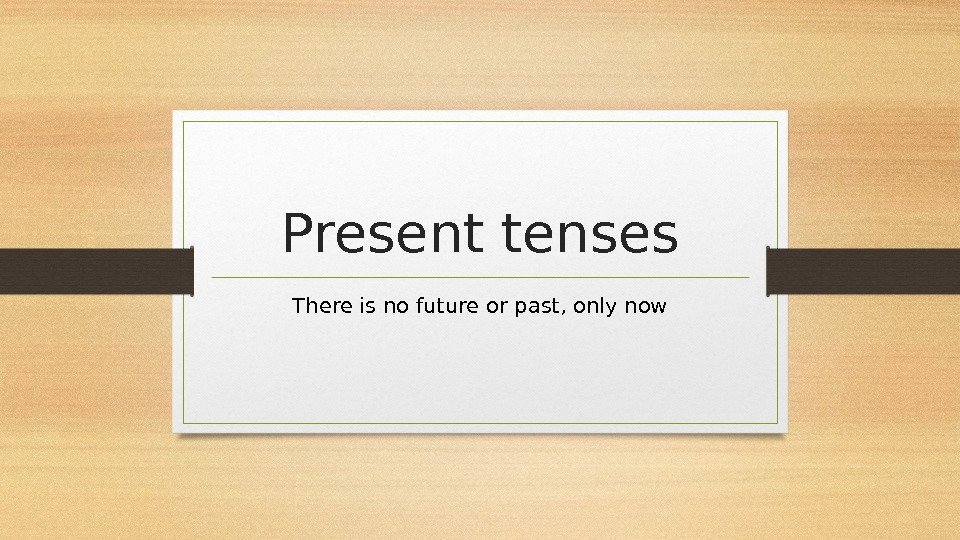
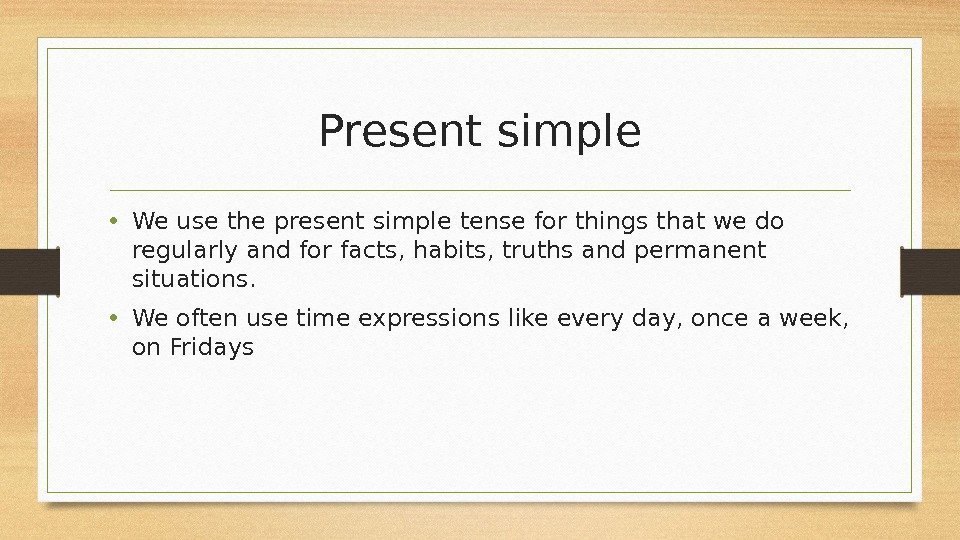
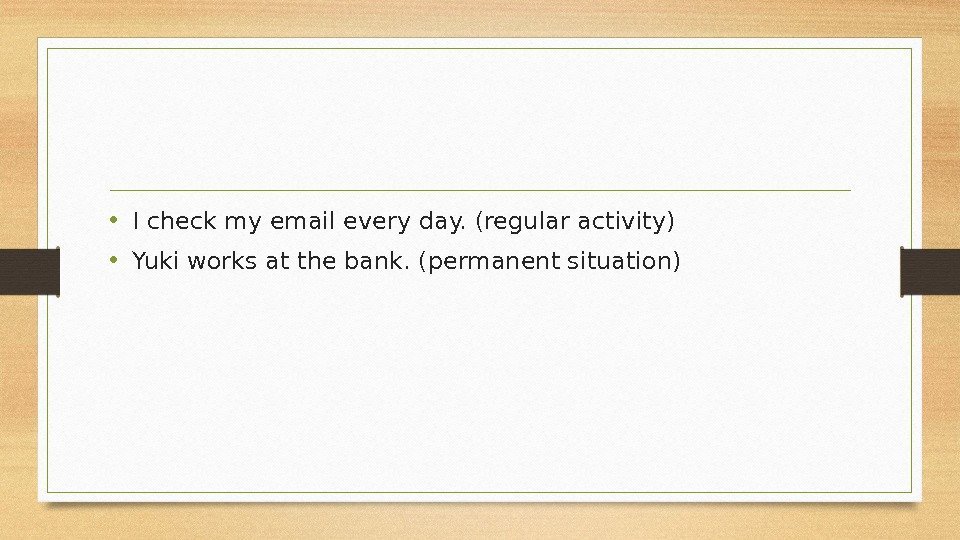
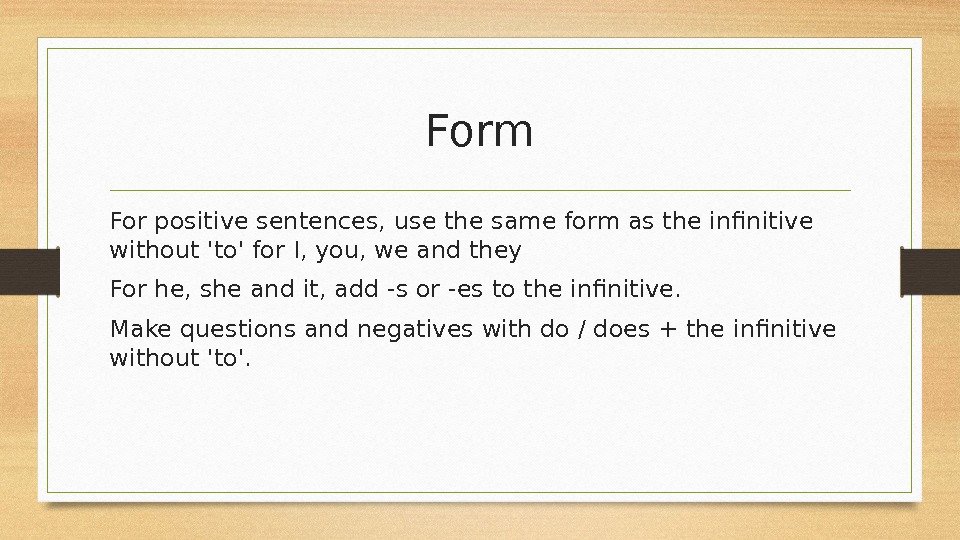
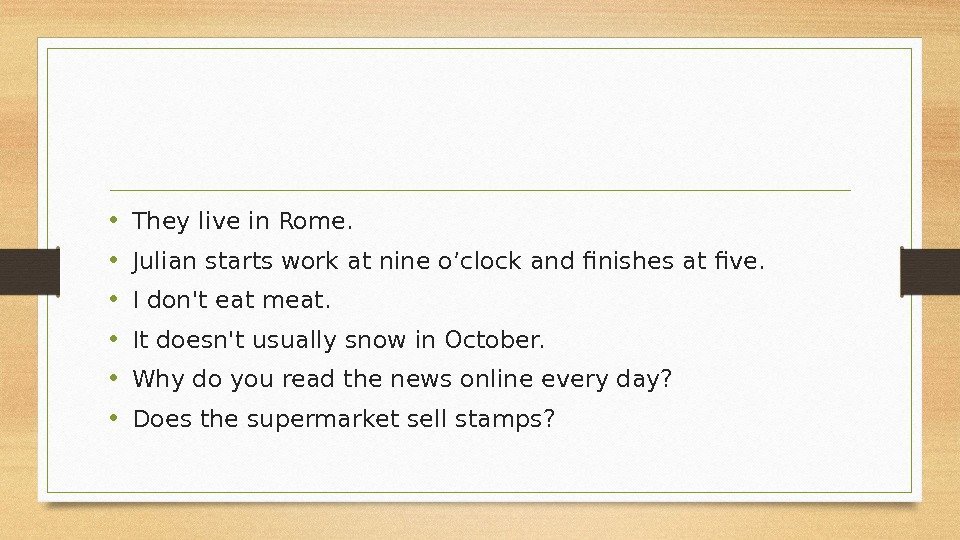
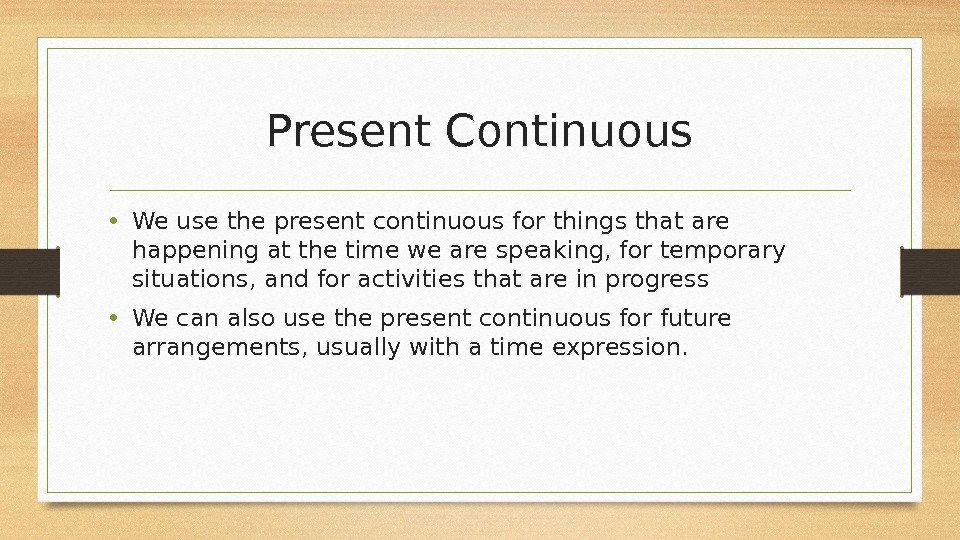
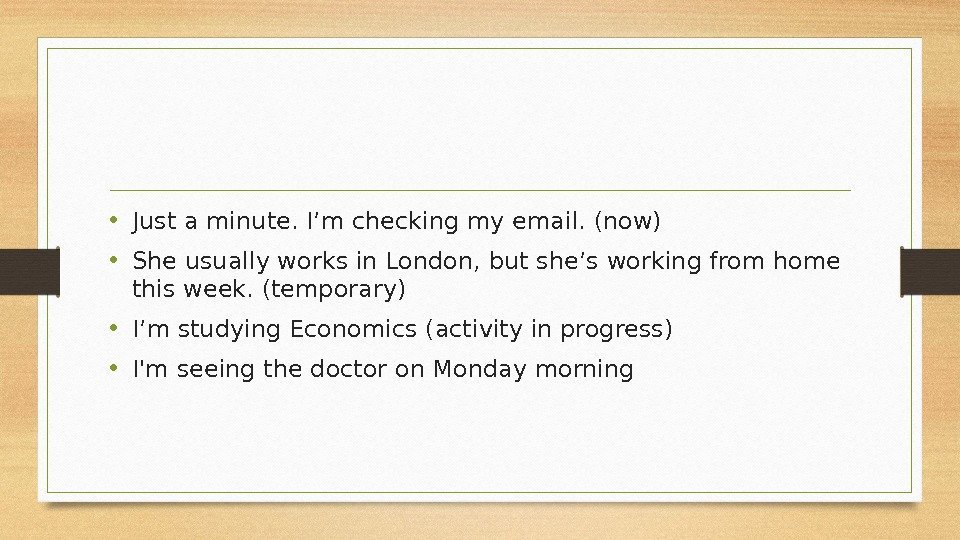
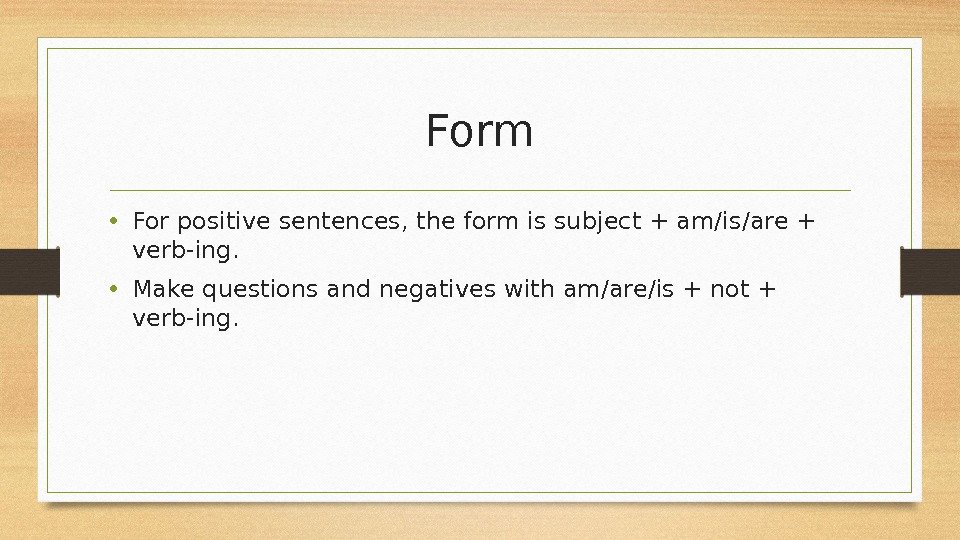
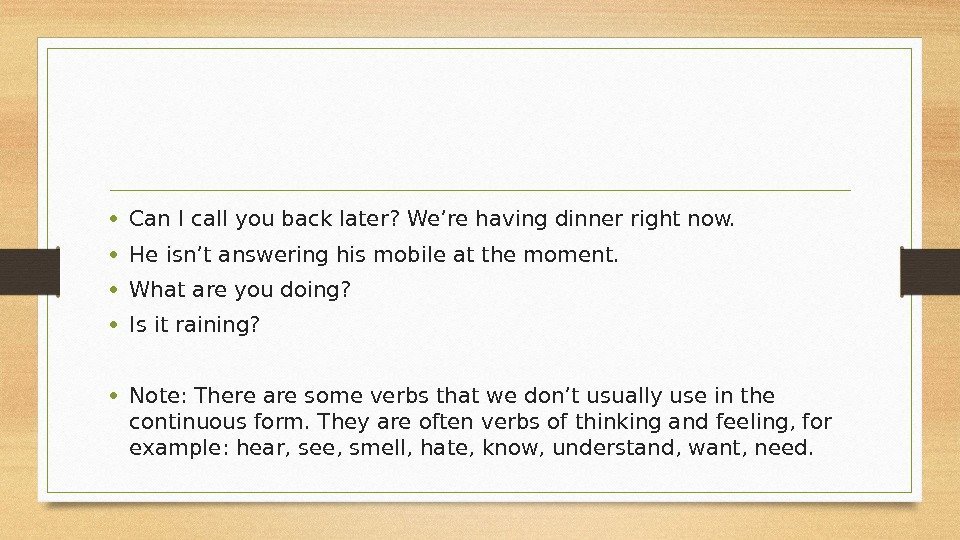
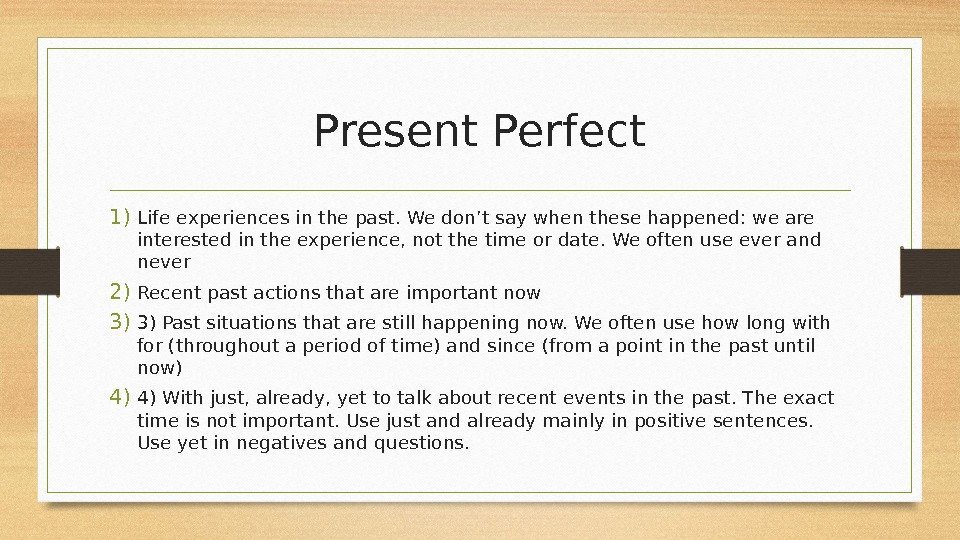
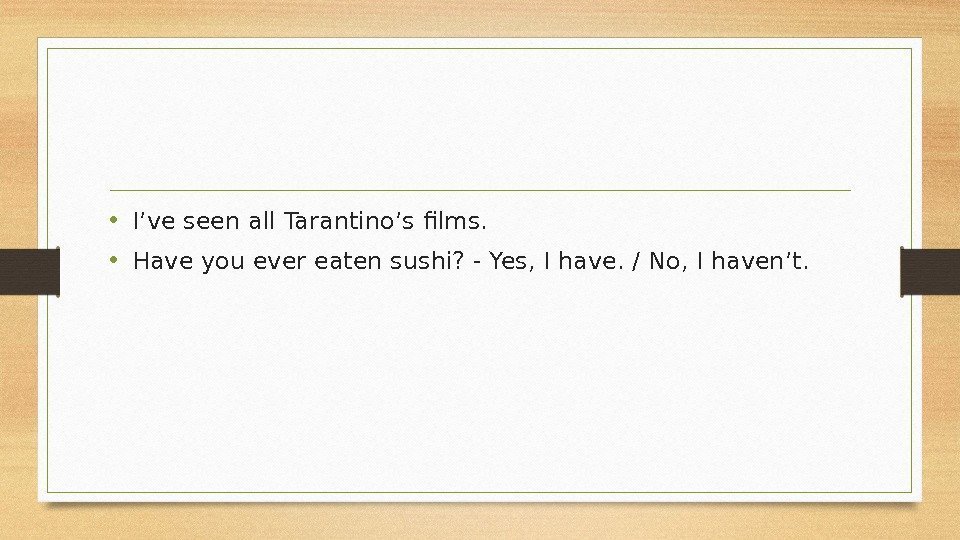
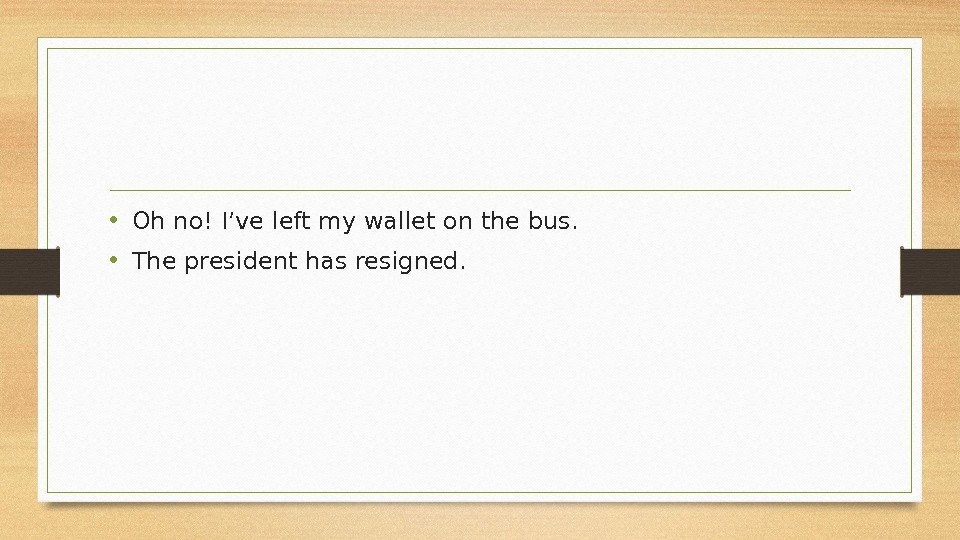
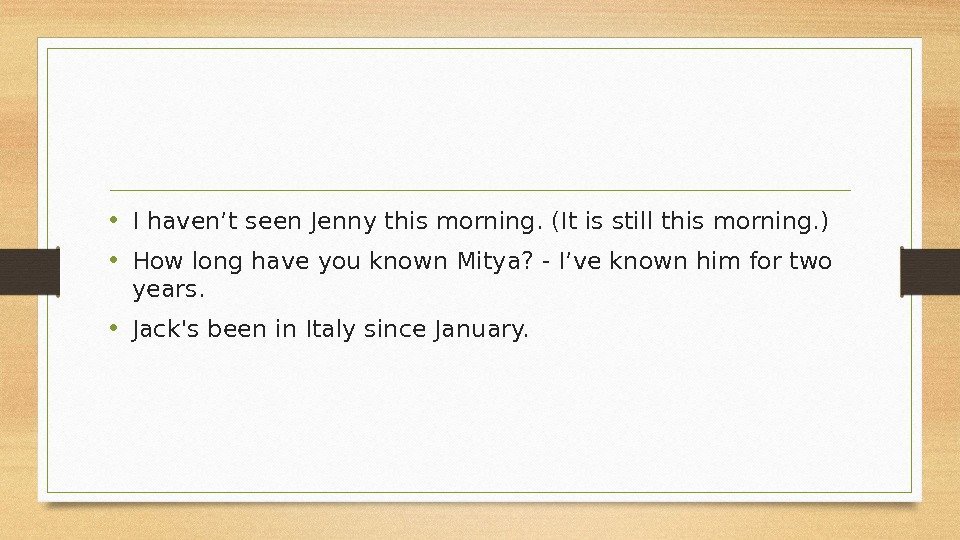
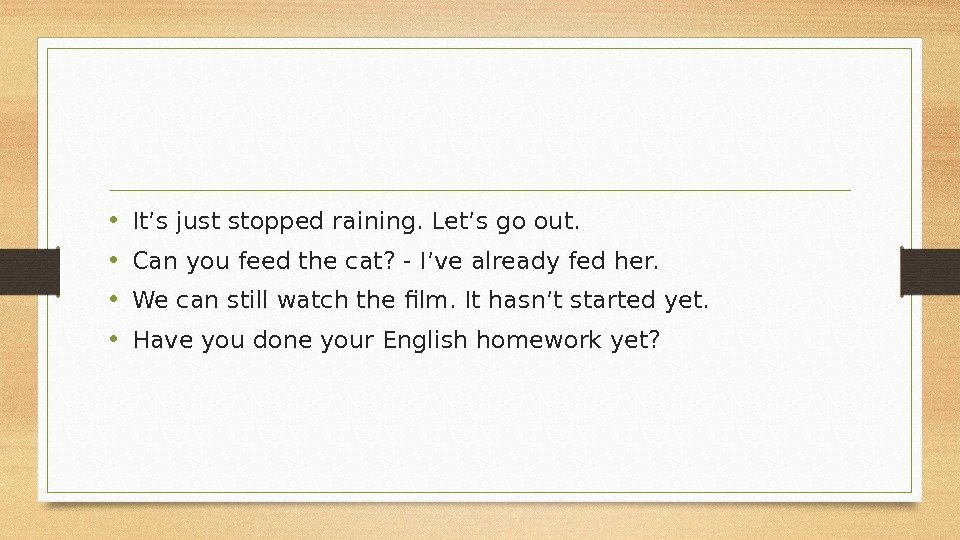
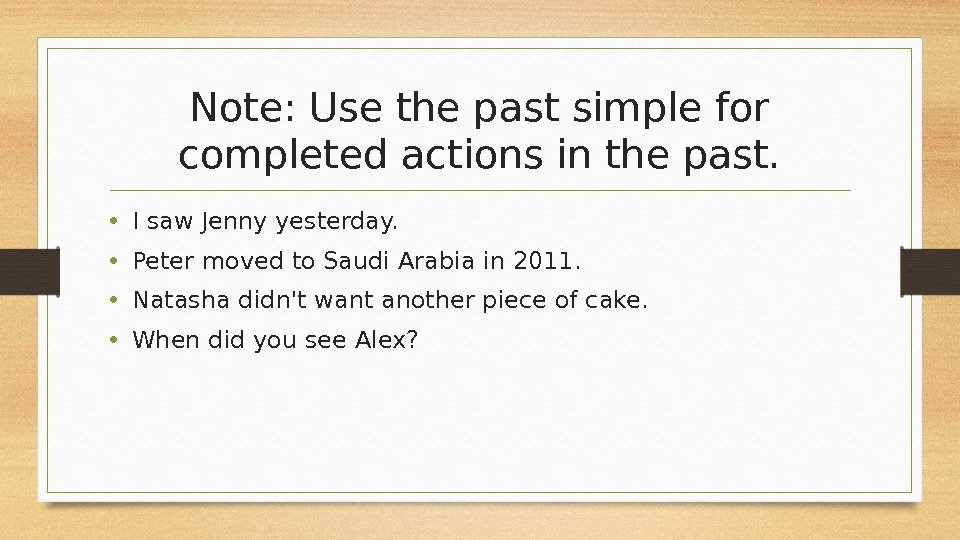
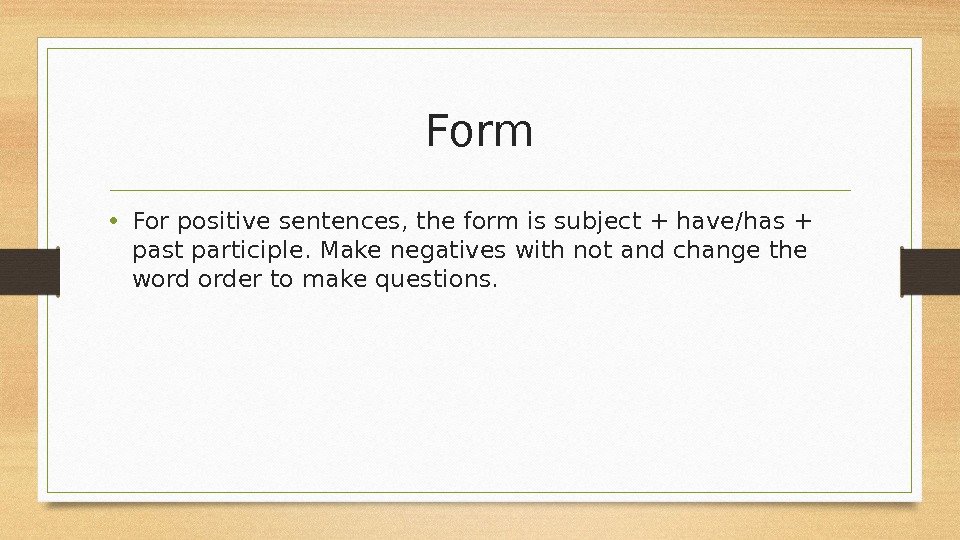
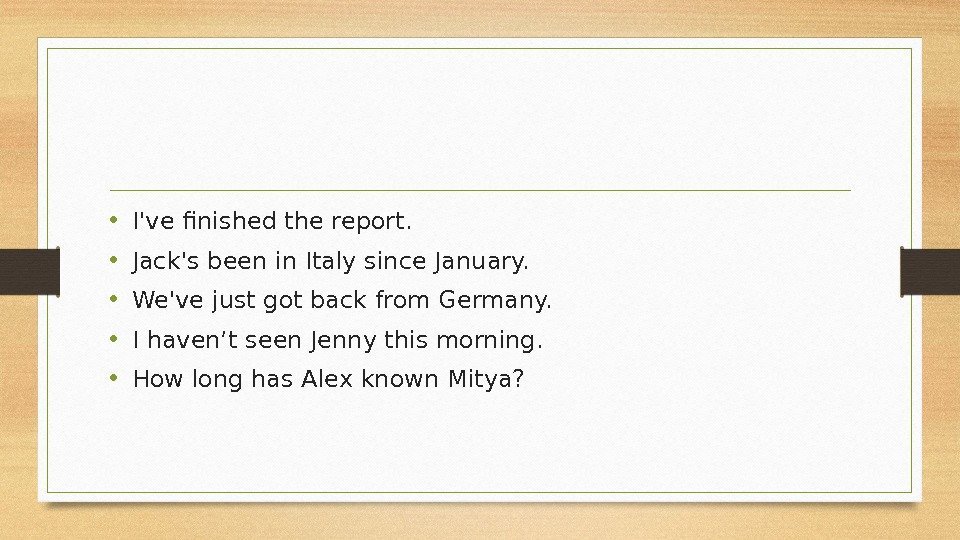
present_tenses.pptx
- Размер: 1.0 Мб
- Автор:
- Количество слайдов: 17
Описание презентации Present tenses There is no future or past, по слайдам
 Present tenses There is no future or past, only now
Present tenses There is no future or past, only now
 Present simple • We use the present simple tense for things that we do regularly and for facts, habits, truths and permanent situations. • We often use time expressions like every day, once a week, on Fridays
Present simple • We use the present simple tense for things that we do regularly and for facts, habits, truths and permanent situations. • We often use time expressions like every day, once a week, on Fridays
 • I check my email every day. (regular activity) • Yuki works at the bank. (permanent situation)
• I check my email every day. (regular activity) • Yuki works at the bank. (permanent situation)
 Form For positive sentences, use the same form as the infinitive without ‘to’ for I, you, we and they For he, she and it, add -s or -es to the infinitive. Make questions and negatives with do / does + the infinitive without ‘to’.
Form For positive sentences, use the same form as the infinitive without ‘to’ for I, you, we and they For he, she and it, add -s or -es to the infinitive. Make questions and negatives with do / does + the infinitive without ‘to’.
 • They live in Rome. • Julian starts work at nine o’clock and finishes at five. • I don’t eat meat. • It doesn’t usually snow in October. • Why do you read the news online every day? • Does the supermarket sell stamps?
• They live in Rome. • Julian starts work at nine o’clock and finishes at five. • I don’t eat meat. • It doesn’t usually snow in October. • Why do you read the news online every day? • Does the supermarket sell stamps?
 Present Continuous • We use the present continuous for things that are happening at the time we are speaking, for temporary situations, and for activities that are in progress • We can also use the present continuous for future arrangements, usually with a time expression.
Present Continuous • We use the present continuous for things that are happening at the time we are speaking, for temporary situations, and for activities that are in progress • We can also use the present continuous for future arrangements, usually with a time expression.
 • Just a minute. I’m checking my email. (now) • She usually works in London, but she’s working from home this week. (temporary) • I’m studying Economics (activity in progress) • I’m seeing the doctor on Monday morning
• Just a minute. I’m checking my email. (now) • She usually works in London, but she’s working from home this week. (temporary) • I’m studying Economics (activity in progress) • I’m seeing the doctor on Monday morning
 Form • For positive sentences, the form is subject + am/is/are + verb-ing. • Make questions and negatives with am/are/is + not + verb-ing.
Form • For positive sentences, the form is subject + am/is/are + verb-ing. • Make questions and negatives with am/are/is + not + verb-ing.
 • Can I call you back later? We’re having dinner right now. • He isn’t answering his mobile at the moment. • What are you doing? • Is it raining? • Note: There are some verbs that we don’t usually use in the continuous form. They are often verbs of thinking and feeling, for example: hear, see, smell, hate, know, understand, want, need.
• Can I call you back later? We’re having dinner right now. • He isn’t answering his mobile at the moment. • What are you doing? • Is it raining? • Note: There are some verbs that we don’t usually use in the continuous form. They are often verbs of thinking and feeling, for example: hear, see, smell, hate, know, understand, want, need.
 Present Perfect 1) Life experiences in the past. We don’t say when these happened: we are interested in the experience, not the time or date. We often use ever and never 2) Recent past actions that are important now 3) 3) Past situations that are still happening now. We often use how long with for (throughout a period of time) and since (from a point in the past until now) 4) 4) With just, already, yet to talk about recent events in the past. The exact time is not important. Use just and already mainly in positive sentences. Use yet in negatives and questions.
Present Perfect 1) Life experiences in the past. We don’t say when these happened: we are interested in the experience, not the time or date. We often use ever and never 2) Recent past actions that are important now 3) 3) Past situations that are still happening now. We often use how long with for (throughout a period of time) and since (from a point in the past until now) 4) 4) With just, already, yet to talk about recent events in the past. The exact time is not important. Use just and already mainly in positive sentences. Use yet in negatives and questions.
 • I’ve seen all Tarantino’s films. • Have you ever eaten sushi? — Yes, I have. / No, I haven’t.
• I’ve seen all Tarantino’s films. • Have you ever eaten sushi? — Yes, I have. / No, I haven’t.
 • Oh no! I’ve left my wallet on the bus. • The president has resigned.
• Oh no! I’ve left my wallet on the bus. • The president has resigned.
 • I haven’t seen Jenny this morning. (It is still this morning. ) • How long have you known Mitya? — I’ve known him for two years. • Jack’s been in Italy since January.
• I haven’t seen Jenny this morning. (It is still this morning. ) • How long have you known Mitya? — I’ve known him for two years. • Jack’s been in Italy since January.
 • It’s just stopped raining. Let’s go out. • Can you feed the cat? — I’ve already fed her. • We can still watch the film. It hasn’t started yet. • Have you done your English homework yet?
• It’s just stopped raining. Let’s go out. • Can you feed the cat? — I’ve already fed her. • We can still watch the film. It hasn’t started yet. • Have you done your English homework yet?
 Note: Use the past simple for completed actions in the past. • I saw Jenny yesterday. • Peter moved to Saudi Arabia in 2011. • Natasha didn’t want another piece of cake. • When did you see Alex?
Note: Use the past simple for completed actions in the past. • I saw Jenny yesterday. • Peter moved to Saudi Arabia in 2011. • Natasha didn’t want another piece of cake. • When did you see Alex?
 Form • For positive sentences, the form is subject + have/has + past participle. Make negatives with not and change the word order to make questions.
Form • For positive sentences, the form is subject + have/has + past participle. Make negatives with not and change the word order to make questions.
 • I’ve finished the report. • Jack’s been in Italy since January. • We’ve just got back from Germany. • I haven’t seen Jenny this morning. • How long has Alex known Mitya?
• I’ve finished the report. • Jack’s been in Italy since January. • We’ve just got back from Germany. • I haven’t seen Jenny this morning. • How long has Alex known Mitya?

